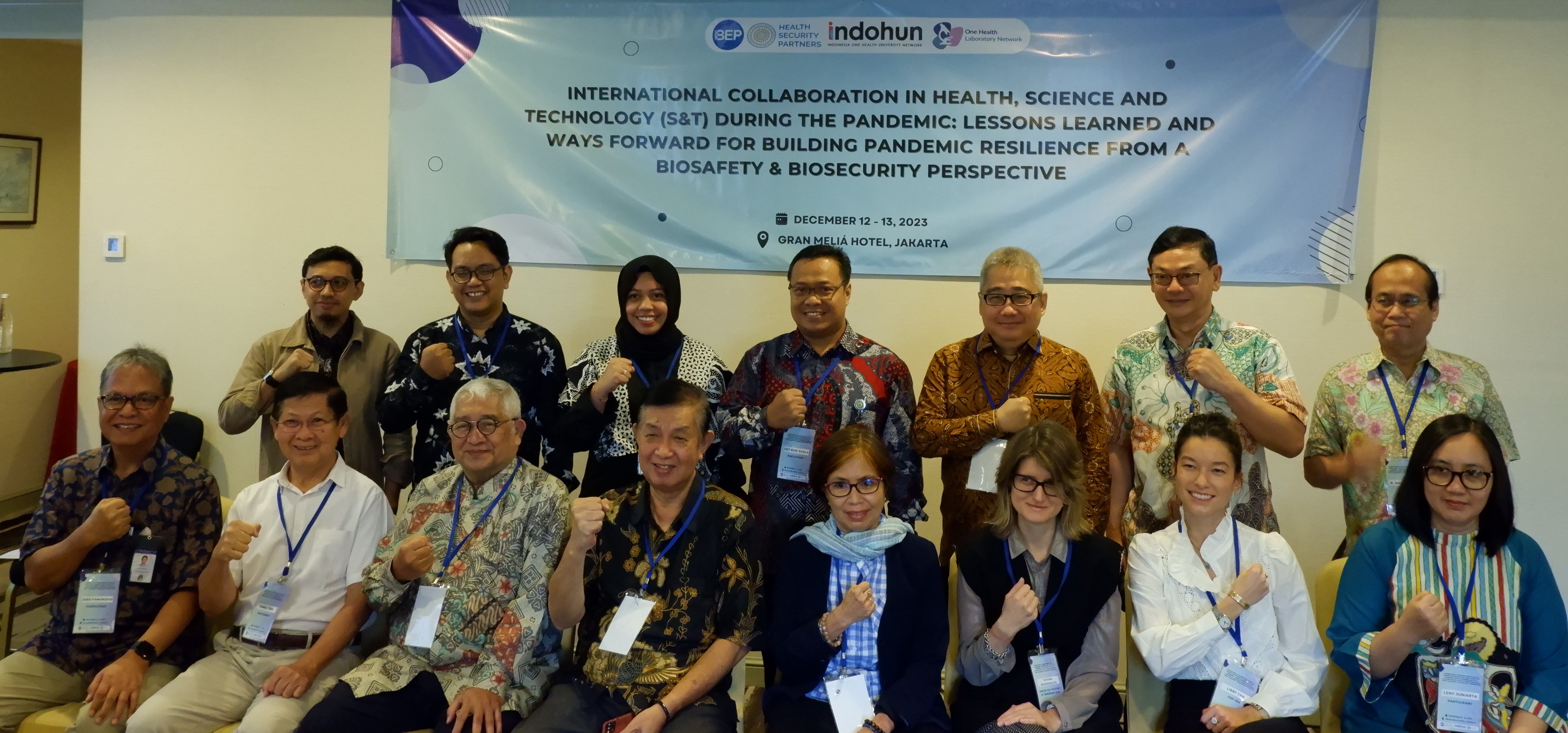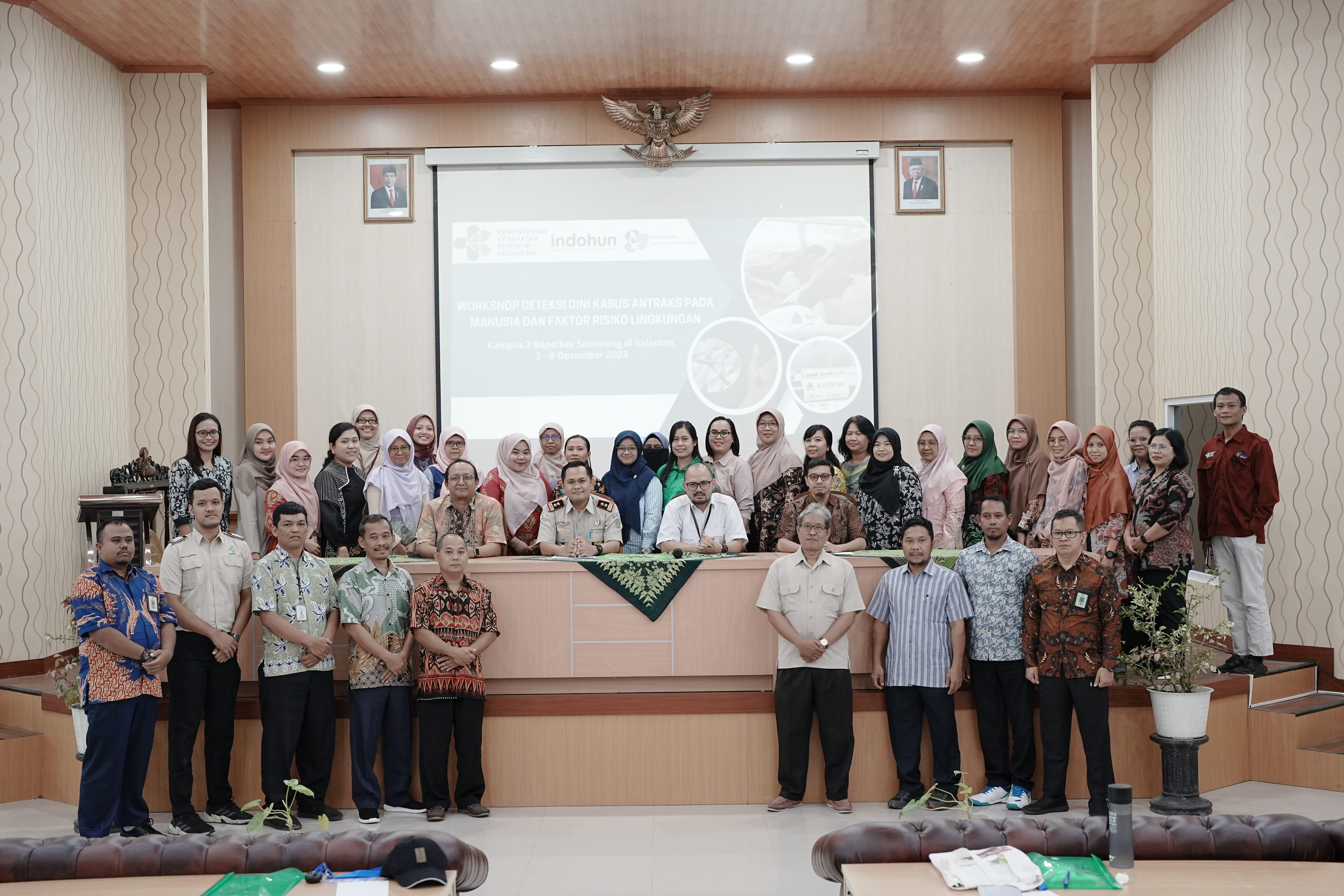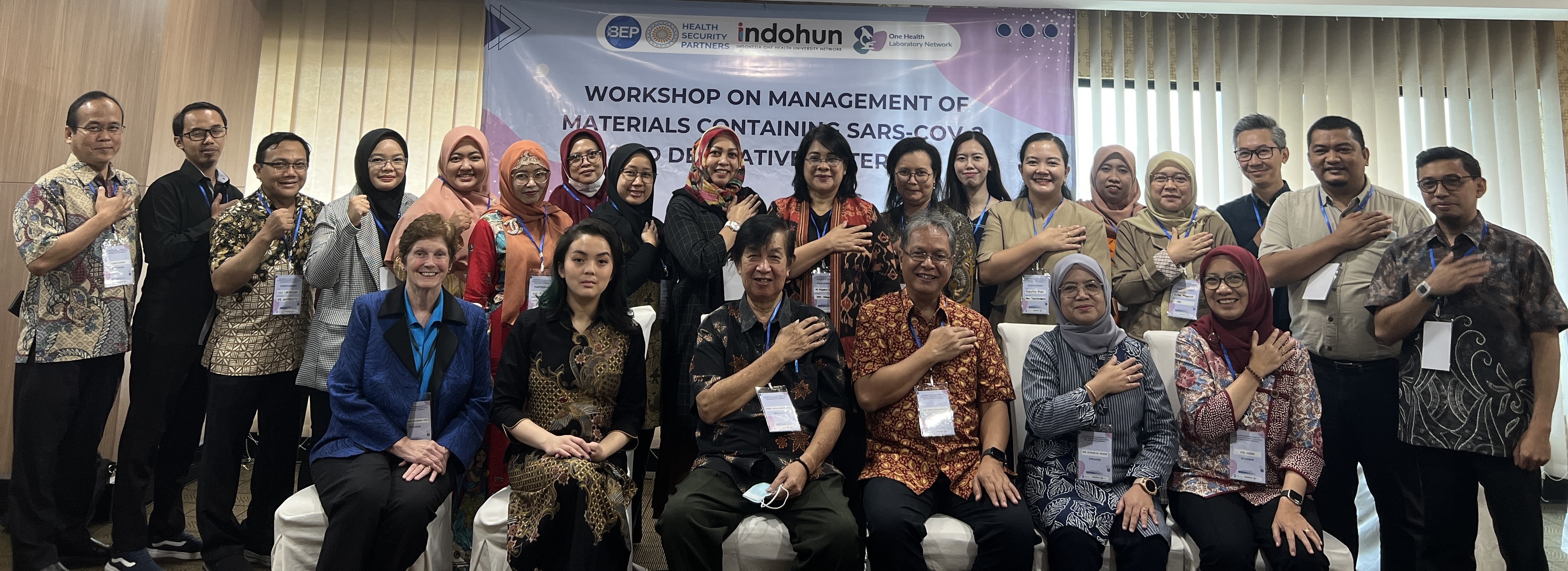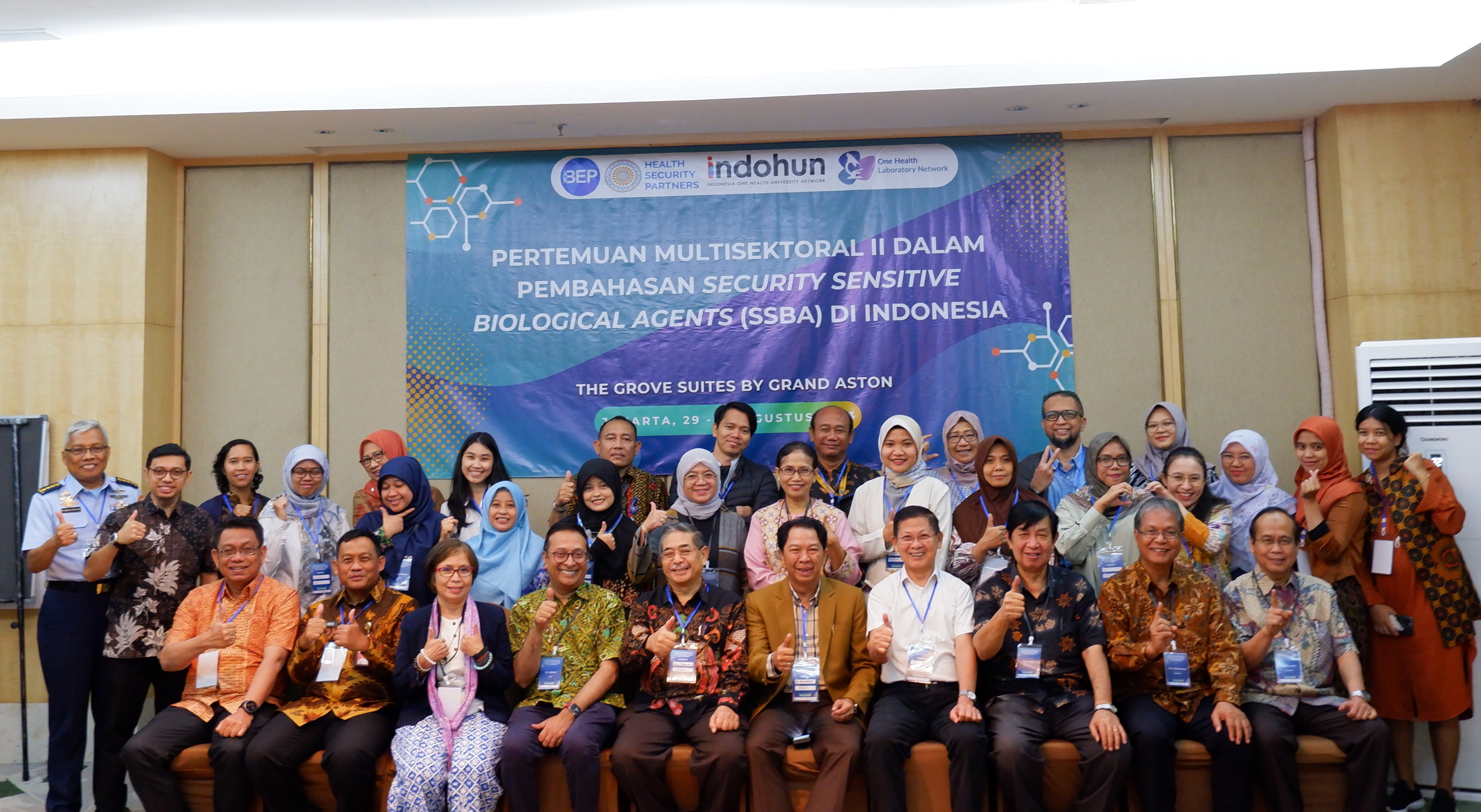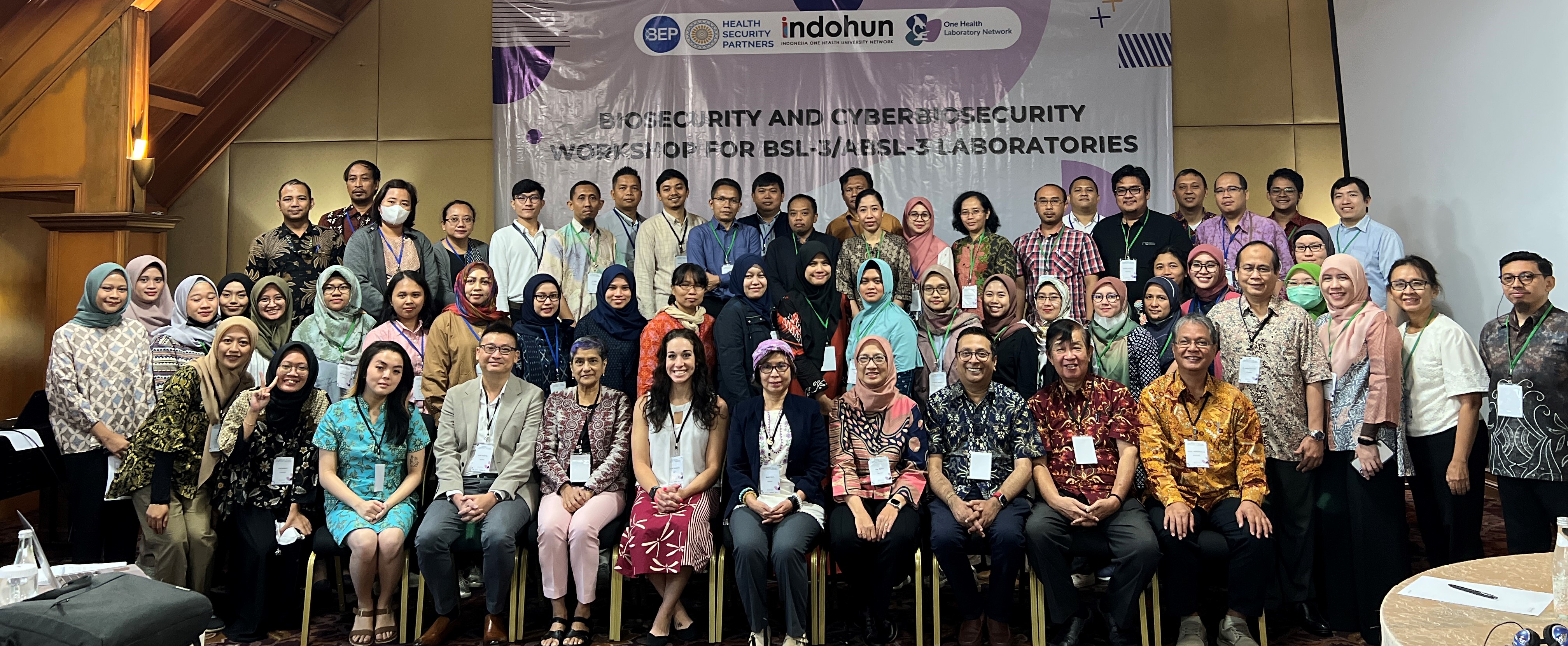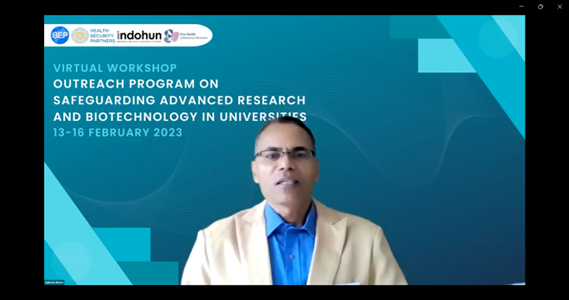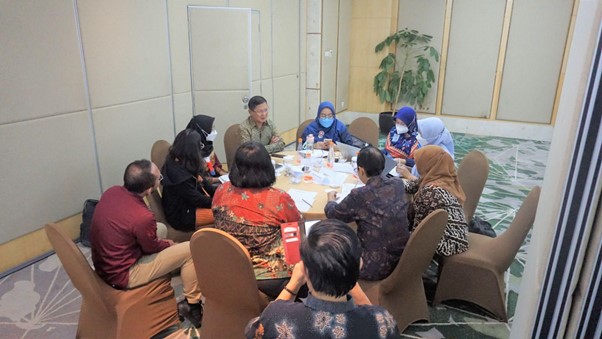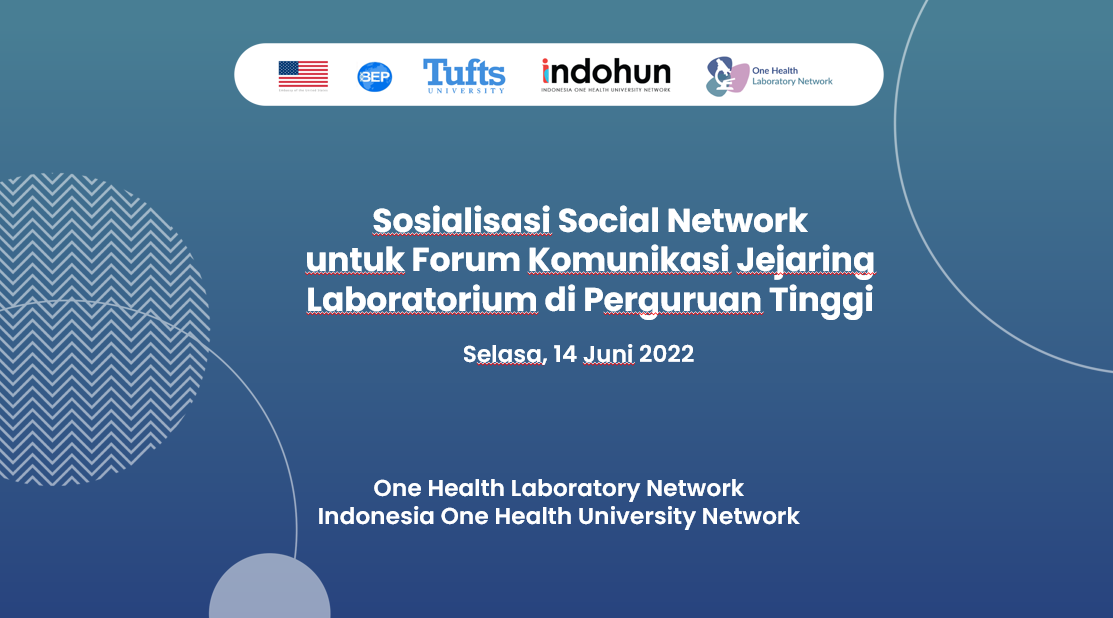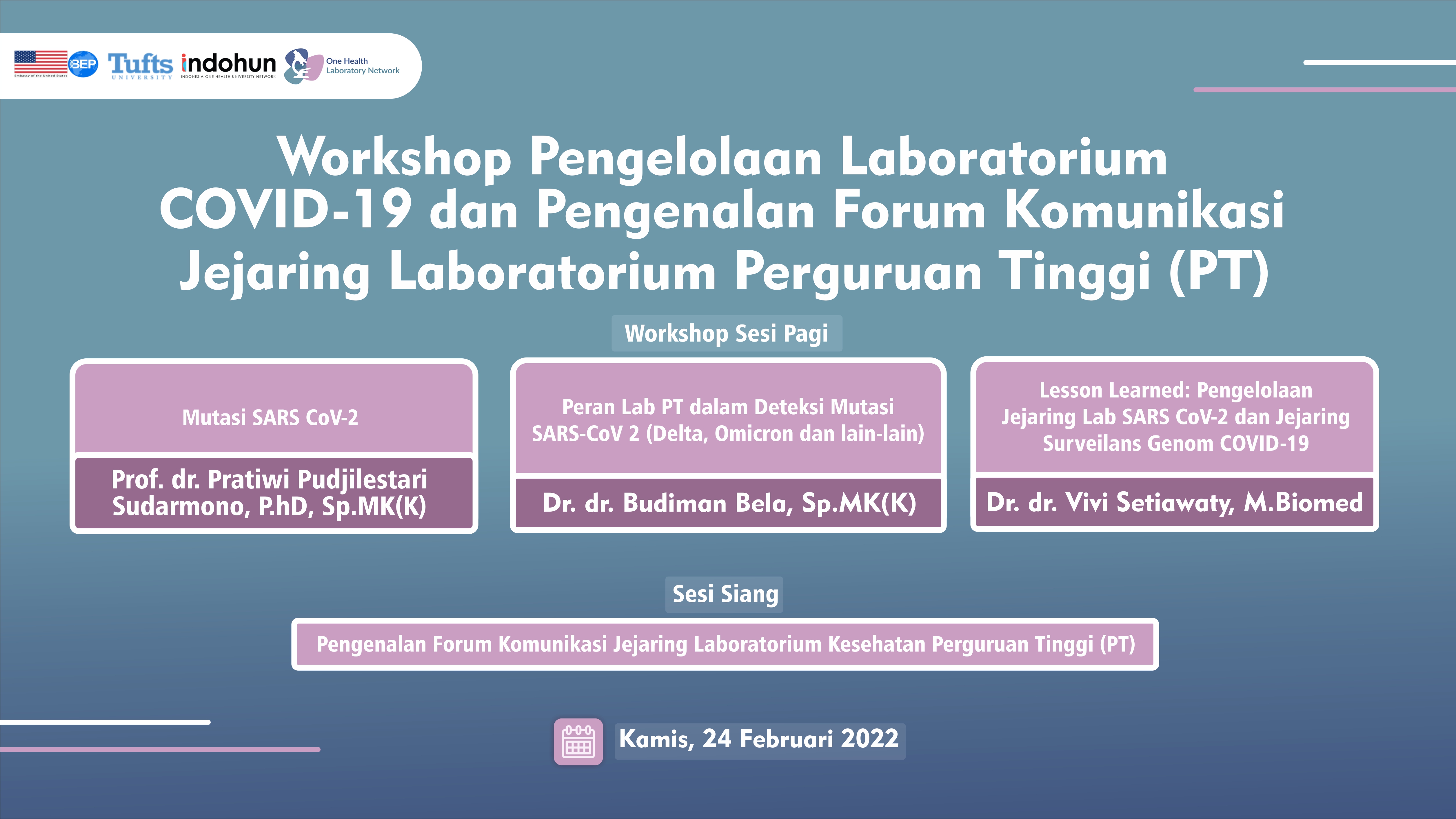The Ministry of Health (MOH) has adopted 11 core functions of the Public Health Laboratory (PHL) from the World Health Organization (WHO) and the Public Health Laboratory Network (PHLN)/Association of Public Health Laboratories, namely Disease Prevention, Control and Surveillance, Integrated Data Management, Reference and Specialized Testing, Environmental Health and Protection, Food Safety, Laboratory […]
CONSULTATIVE MEETING “INTERNATIONAL COLLABORATION IN HEALTH, SCIENCE AND TECHNOLOGY (S&T) DURING THE PANDEMIC: LESSONS LEARNED AND WAYS FORWARD FOR BUILDING PANDEMIC RESILIENCE FROM A BIOSAFETY & BIOSECURITY PERSPECTIVE”
CONSULTATIVE MEETING “INTERNATIONAL COLLABORATION IN HEALTH, SCIENCE AND TECHNOLOGY (S&T) DURING THE PANDEMIC: LESSONS LEARNED AND WAYS FORWARD FOR BUILDING PANDEMIC RESILIENCE FROM A BIOSAFETY & BIOSECURITY PERSPECTIVE”
The challenges of the pandemic not only test the resilience of the global health system but also underscore the importance of international collaboration in responding to health crises. In this context, a consultation meeting with the theme “INTERNATIONAL COLLABORATION IN HEALTH, SCIENCE AND TECHNOLOGY (S&T) DURING THE PANDEMIC: LESSONS LEARNED AND WAYS FORWARD FOR […]
WORKSHOP ON EARLY DETECTION OF ANTRAX CASES IN HUMAN AND ENVIRONMENTAL RISK FACTORS
WORKSHOP ON EARLY DETECTION OF ANTRAX CASES IN HUMAN AND ENVIRONMENTAL RISK FACTORS
Indonesia is one of the countries in Asia that serves as a hotspot for zoonotic diseases and emerging/new-emerging/re-emerging diseases, posing a health risk to both animals and humans. 70% of these emerging/new-emerging/re-emerging diseases are also zoonoses, which can contribute to the risk of outbreaks or Public Health Emergencies of International Concern (PHEIC). Anthrax is […]
Workshop on Management of Materials Containing SARS-CoV-2 and Derivative Materials
Workshop on Management of Materials Containing SARS-CoV-2 and Derivative Materials
In order to maintain public safety and health, attention to the management of materials containing SARS-CoV-2 and its derivative materials is becoming increasingly important. In response to the global pandemic that recently hit the world, understanding and practices related to the management of these materials have become a major focus for various sectors, including […]
Multisectoral Meeting II to Discuss Security Sensitive Biological Agents (SSBA) in Indonesia
Multisectoral Meeting II to Discuss Security Sensitive Biological Agents (SSBA) in Indonesia
Indonesia One Health University Network (INDOHUN) continues to strive to support the implementation of the laboratory biorisk management system (SMBL) through the One Health Laboratory Network (OHLN) program in university and government laboratories in order to improve safety and security in handling biological materials during the identification and detection of infectious diseases. emerging (PIE) […]
Workshop “Biosecurity and Cyberbiosecurity for BSL3/ABSL3 laboratories”
Workshop “Biosecurity and Cyberbiosecurity for BSL3/ABSL3 laboratories”
BSL3 (Biosafety Level 3) or ABSL3 (Animal Biosafety Level 3) is a laboratory safety level specifically designed for the research and manipulation of pathogenic microorganisms that can cause serious disease in humans or animals. BSL3/ABSL3 facilities adhere to strict standards in terms of design, equipment, and work protocols to prevent the spread of dangerous […]
Virtual Outreach Program on Safeguarding Advanced Research and Biotechnology in Universities
Virtual Outreach Program on Safeguarding Advanced Research and Biotechnology in Universities
Currently the field of emerging biotechnology and its application in the world and in Indonesia continues to grow rapidly, because it’s getting easier to perform and also cheaper. At the same time, issues of bioterrorism and research with the potential for dual use are also increasing. As a network that supports the establishment of integrated […]
Multisectoral Meeting on the Discussion of Security Sensitive Biological Agents (SSBA) in Indonesia
Multisectoral Meeting on the Discussion of Security Sensitive Biological Agents (SSBA) in Indonesia
The rapid development of biotechnology, such as microbiology and parasitology, food and plant materials, organism modification, genetic modification, and chemical modification, has broad implications. Besides supporting national economic growth, industrial development, and improving public health status, advanced biotechnology can also have negative implications if the technology misuse prevention is not taken into account. The development […]
Socialization of Web Social Network for Laboratory Network Communication Forum in Higher Education (PT)
Socialization of Web Social Network for Laboratory Network Communication Forum in Higher Education (PT)
INDOHUN through the OHLN program has held a COVID-19 Laboratory Management Workshop and Introduction to the Higher Education Laboratory Network Communication Forum (PT) on Thursday, 24 February 2022. Follow up on this initiative, INDOHUN has created a platform and organized a Web Social Network Socialization activity for the Laboratory Network Communication Forum in Higher Education […]
COVID-19 Laboratory Management Workshop and Introduction to The University Laboratory Network Communication Forum
COVID-19 Laboratory Management Workshop and Introduction to The University Laboratory Network Communication Forum
The COVID-19 pandemic is still affecting nearly every country on the planet, including Indonesia. Laboratory capacity in terms of COVID-19 inspection capability and safety must be increased. COVID-19 testing is a necessity for certain activities as well as one of the screening strategies for discovering COVID-19 instances in the community. Since the beginning of the […]

